© 2021 All Rights Reserved. Don’t distribute or repurpose this work with out written permission from the copyright holder(s).
Printed from https://www.damninteresting.com/the-kingpin-of-shanghai/
Respectable heads of state not often admit to conserving firm with gangsters. However in April 1927, about 15 years after the collapse of the final imperial dynasty, Chiang Kai-shek and China had been at a crossroads. Chiang had adopted a murky path to management of the Chinese language Nationalist Social gathering, the Kuomintang. Though the Kuomintang was rivaled by an assortment of warlords who dominated the provinces as their private fiefdoms, in Chiang’s thoughts the best impediment between him and management of that huge and war-torn nation was a younger Communist Social gathering which, he believed, would quickly be nothing however deadly bother.
So generalissimo Chiang turned to Du Yuesheng of the notorious Inexperienced Gang of Shanghai, a legal brotherhood rooted in equal elements menace and murk. Du was the chief of this legal enterprise, and the bloated, gleaming worldwide metropolis lived and died by his phrase. It was the ability of demise which most Chiang that spring. He wished nothing lower than full energy over all of China, and to get it, he was prepared to commerce the lives of hundreds and permit the institution of an unlimited narcotics empire. Others might need balked at buying and selling the homicide of some thousand political opponents for this purpose, however neither Du nor Chiang felt any such hesitation.
Du Yuesheng’s life started in distress. Earlier than it was throughout, it might take him via unspeakable energy, obscene wealth, worldwide infamy, and ultimate obscurity. On the time of his start in August 1888, the Manchurian Qing dynasty, China’s final imperial authorities, was quickly waning, and Du’s birthplace witnessed one of many Qing’s biggest humiliations.
Because the Qing’s energy failed all through the nineteenth century, overseas colonizing powers launched into a sequence of wars to grab as a lot Chinese language territory as they may get their fingers on. Amongst them had been the UK, France, Italy, america, Germany, the Netherlands, and Japan, every of which had steadily carved out chunks of China’s coastal cities. Formally titled “concessions”—in that the Qing had formally given them up, albeit at gunpoint—a string of overseas settlements quickly sprouted alongside the size of China’s coast. In these enclaves, expatriate Westerners constructed their very own houses, colleges, factories, and governments, insulating themselves from all issues Chinese language whereas extracting staggering income from the regular stream of labor pouring in from the encircling areas. Overseas residents of the concessions couldn’t be tried by Chinese language courts, paid no Chinese language taxes, typically held no respect for the ailing empire, and spent their days surrounded by the comforts of Europe, America, and Japan. In the meantime, past their partitions, China’s huge inhabitants grew ever extra destitute and determined.
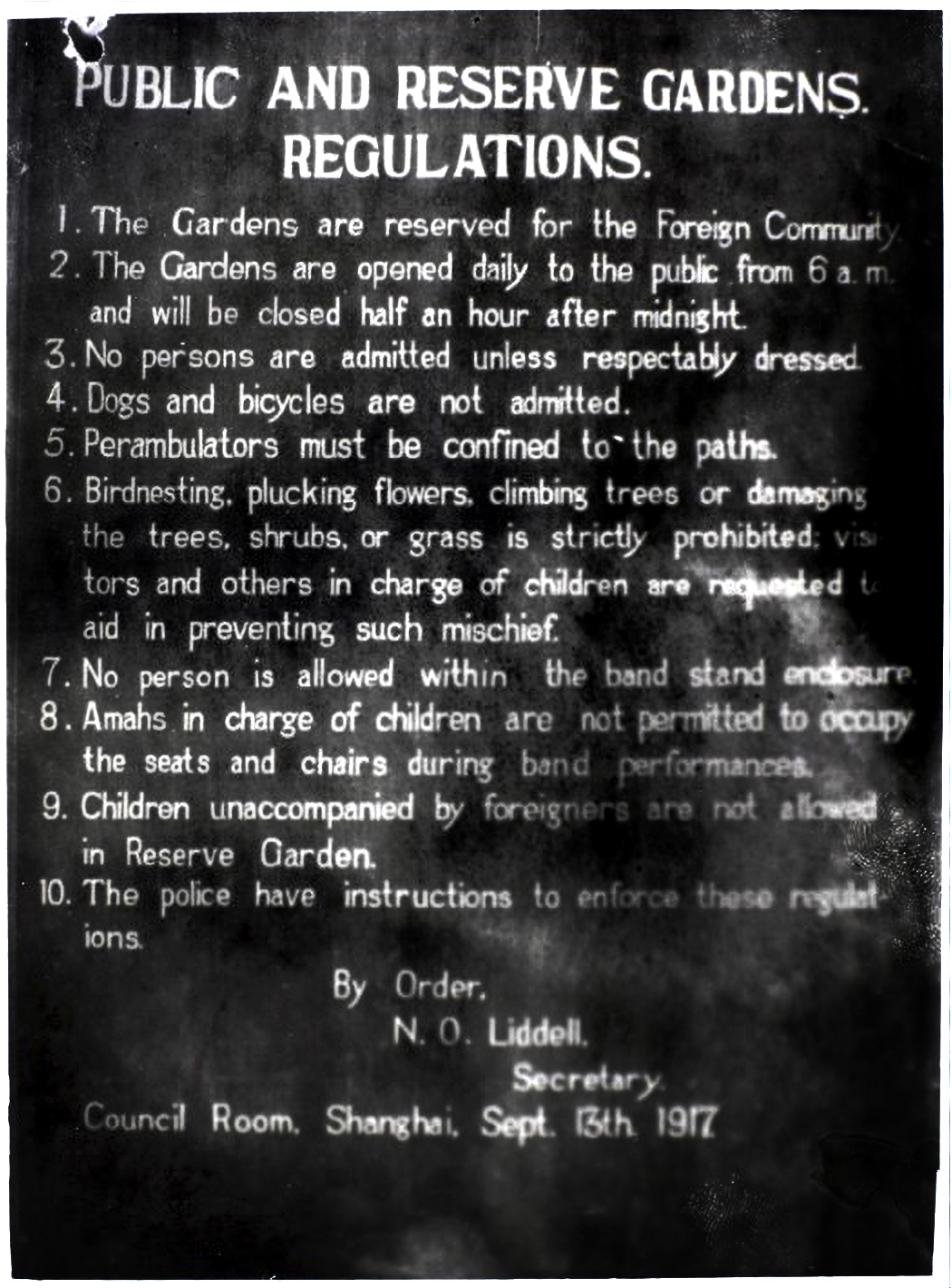
Shanghai, on the mouth of the Yangtze River, was the crown jewel of those colonial cut-outs, with France holding one concession and Britain and the U.S. collectively governing one other. House to hundreds of “Shanghailanders,” as town’s foreign-born residents referred to as themselves, it was the envy of Asia, house to the area’s wealthiest firms, and the premier vacation spot for anybody who wished to have time east of India and north of Singapore. Apart from wealth, the vacuum left by the deboned Chinese language authorized authorities meant town supplied a limitless provide of intercourse, medicine, playing, and virtually every other vice conceivable. With no unified immigration system, Shanghai was the one metropolis on the planet with none bothersome want for visas or official residence permits, and free from something like vigorous regulation enforcement exterior of the well-preened streets inhabited by the well-to-do. Shanghailanders from the treaty powers—these nations with a seat on the highly effective Shanghai Municipal Council—had been prepared to tolerate all method of decadence exterior of the residential districts, as long as they had been free to participate as they happy and it didn’t upset the all-important banks and business issues which steadily stuffed their pockets to bursting.
In distinction, Gaoqiao, a small city which has since been swallowed up by Shanghai because the metropolis sprawled steadily outward, wasn’t a lot to have a look at within the late nineteenth century. Positioned on the far financial institution of the Huangpu River, reverse the looming skyscrapers of the Worldwide Settlements and the business sector, Gaoqiao was house to just some of the numerous hundreds of Chinese language porters, servants, retailers, and others who stored town operating. The district they lived in, Pudong, was probably the most determined slum within the nation, house to the hundreds of thousands of employees who streamed into the province of Jiangsu surrounding Shanghai, with out whom probably the most rich, and corrupt metropolis in China would have floor to a halt.
When Du was a boy, his mother and father had been amongst them. His father ran a rice store part-time and labored as a day laborer when he might handle to get onto an area work gang. His mom, a washerwoman, died when Du was three. Struggling to remain afloat, Du’s father made a tragically frequent alternative for the time, promoting his child daughter into slavery. Du was despatched to be raised by his uncle, serving as an apprentice carpenter. Du made two private discoveries throughout these childhood: he hated guide labor, and he liked playing. Already, by the age of 4, the precocious gamesman was enamored of back-alley video games of fan-tan, cube, and paijiu, a high-stakes sport nicknamed “consuming canine meat,” with the neighborhood boys. Earlier than lengthy, betting was his fundamental curiosity, and he eagerly stole from his uncle to fund his behavior. 4 years later, his uncle, exasperated by the mix of laziness and sticky fingers, kicked the 8-year-old again to his father’s home.
There wasn’t a lot aid available there, both. His father had died when he was 5, and Du was raised by his stepmother for the subsequent few years, surviving by operating the rice store. Simply 4 years later, that, too, got here to an finish when native Triad members kidnapped the younger, fairly widow and reportedly bought her to one of many metropolis’s many brothels, leaving the 9-year-old boy to fend for himself.
By the age of 14, Du was a veteran gambler, with no formal schooling or trustworthy prospects, and utterly alone. With little left for him in Gaoqiao, he moved downriver in 1902, into Shanghai correct to hunt his fortune. From his humble hometown on the outskirts, the younger man had come to the largest, most glamorous, and most totally rotten metropolis in China, a spot the place folks like him had been compelled to work to prop up the looming towers in trade for scraps. It was, in response to a well-liked saying of the time, “a skinny layer of heaven on a thick slice of hell.”
Du spent the subsequent few years eking out a dwelling, each time and wherever he might, till he lastly secured a gradual job as an apprentice with the Da You Fruit Firm alongside the wharves in Shanghai’s Previous Metropolis. The following 5 years could be spent on the fruit stall, together with his wages disappearing into wagers in after-hours playing classes. When he wasn’t flinging rotten fruit at well-dressed passersby, he was swiping from the until to fund his video games. His employers, upon discovering the lacking cash, had been even happier to indicate him the door than his uncle had been. This put a everlasting finish to legit work for Du Yuesheng.
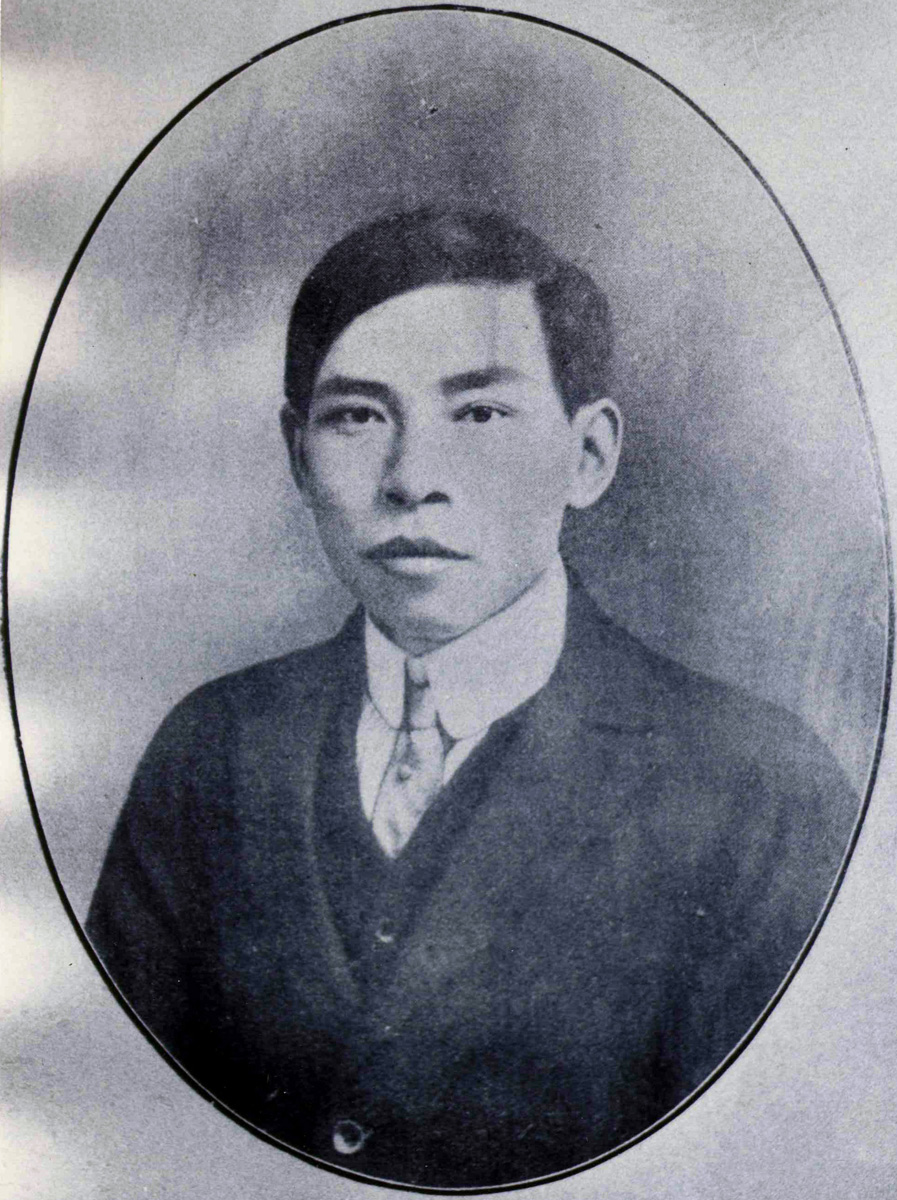
Fortunately, his playing hadn’t been a fruitless waste. In the middle of lots of of video games, he’d met and befriended a few of Shanghai’s most disreputable denizens, together with a fellow gamester and pimp nicknamed “Lot Drawer.” Sensing potential in gangly younger Du, Lot Drawer sponsored his initiation into the Inexperienced Gang, a potent legal group which was steadily gaining forex in Shanghai’s underworld. With its roots in secret societies of boatmen on the Grand Canal, which stretched the size of Jap China, the Inexperienced Gang had already existed for some 60 years by the point Du enrolled within the 1910s, though its members claimed it descended from the Luoist spiritual cult centuries earlier than.
This distinguished establishment furnished Du with a petty profession as a numbers runner, extortion artist, and small-time opium vendor. He appeared destined for a life as one of many numerous dockland hoodlums who made the streets a hazard after darkish. He additionally developed a passion for the very opium he peddled, a behavior which deadened his eyes and gave his already unsettling visage a grim, reptilian look with a completely droopy left eyelid. Deciding to make an asset of his chilling seems to be, he started to shave his head to be able to make his giant ears stand out all of the extra prominently. Within the course of, he earned himself a nickname which might turn into an immortal a part of the mystique of previous Shanghai: “Huge-Eared Du.”
He acquired his large break, nonetheless, when he met Huang Jinrong, referred to as “Pockmarked Huang” for the multitude of smallpox scars webbing his face. Huang had constructed a profitable legal profession with the Inexperienced Gang, rising to turn into its boss earlier than his near-encyclopedic information of Shanghai’s underbelly introduced him to the eye of the police within the French Concession some 20 years earlier. Moderately than arresting him, the French Concession Police wished an ally, somebody whose information and connections would permit them to make praiseworthy arrests, justify their funds, and reassure the concession’s governor that every one was effectively. Pockmarked Huang, grasping, crafty, and succesful, was the proper alternative, and in 1892, he was employed as a plainclothes legal detective whilst he continued to run the Inexperienced Gang.
Du might need gone unnoticed if not for assembly Lin Guisheng, Huang’s spouse, a former brothel madame and the undisputed queen of Shanghai’s profitable night-soil market. Taking a shine to “Fruit Yuesheng,” because the teenage gangster was then recognized, she pushed her influential husband to supply the blossoming racketeer with an increasing number of accountability. However Du was too savvy and too formidable to stay “Fruit Yuesheng” for lengthy.
After proving his mettle managing a small opium den, Du was introduced into the actual moneymaker: managing one in every of Huang’s monumental dens within the French Concession itself, the place the opium commerce loved the safety of French police, and the blind eyes purchased with Huang’s affect and silver {dollars}. For greater than 10 years, Du served as Huang’s trusted lieutenant, accumulating his reduce of the income, imposing order among the many gang, and scaring native retailers into line. It was greater than sufficient time for just a few schemes of his personal to take form.
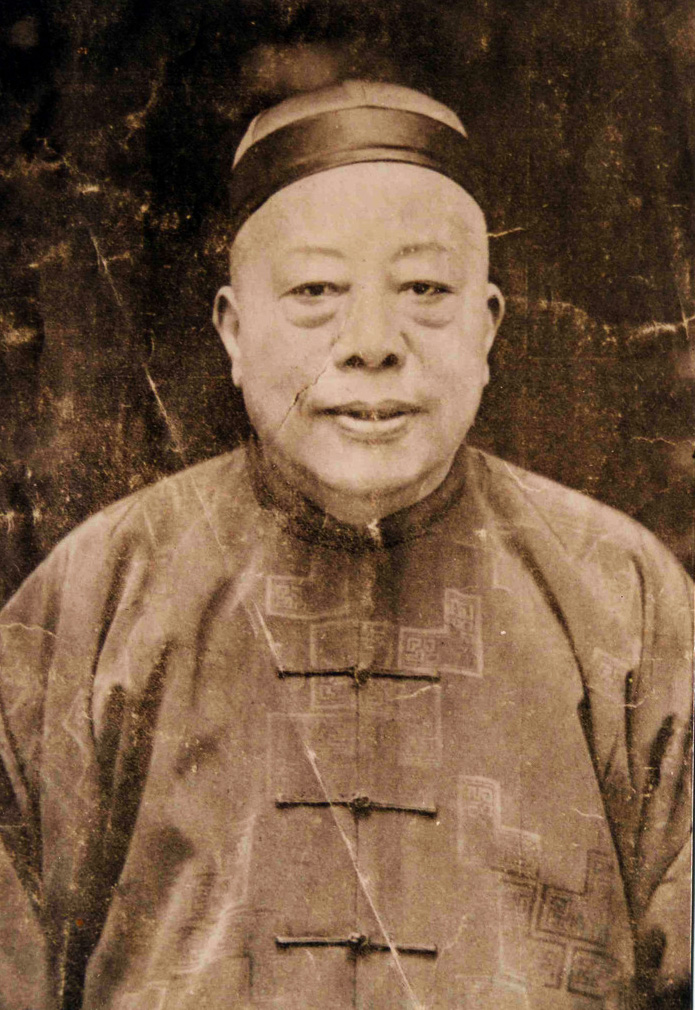
Regardless of sitting on a narcotic gold mine behind a sheer wall of energy and safety, Huang was a person of restricted imaginative and prescient. A gangster of the old fashioned, he was content material to difficulty French-sanctioned licenses to opium den house owners and skim a share off for the Inexperienced Gang and himself. For him, life on high meant having fun with a gradual, if sedate, stream of quiet income and reveling in his personal imagined untouchability.
Shanghai shattered his illusions when it reached out to the touch him in 1924. Huang doted on a well-liked singer, showering her with items and even constructing her a private theater. One night time, he hurried alongside to the singer’s mansion to attend an opera efficiency. Additionally attending was a famous Shanghai playboy and, extra importantly, the son of a strong native warlord. Through the efficiency, the drunken playboy, apparently deciding he didn’t take care of the singing, loudly booed and heckled the singer. Huang, incensed and positive of his personal energy, had his bodyguards beat the younger sop earlier than booting him off the premises. Assured that the matter was settled, he went again to his seat and loved the present.
Just a few nights later, on the identical theater, Huang was taking in one other efficiency when a number of males burst into the stands, made their method to his seat, pressed pistols to his head, and hauled him off to a cell for a vicious beating. The warlord’s son had refused to simply accept Huang’s insult, and drew on his father’s affect to actual his revenge. Neither the French nor every other foreigners had ever allowed any Chinese language soldier to set foot of their concession, and the truth that they’d been allowed in to impact the humiliating arrest was a positive signal that Huang was dropping favor.
Upon listening to of the Inexperienced Gang godfather’s arrest, Du Yuesheng noticed a chance. For years, he’d grown quietly annoyed on the unambitious tempo of Shanghai’s drug commerce, and realized {that a} sharp-minded operator might remodel the sale of opium, morphine, and heroin in China’s greatest drug market right into a single, fabulously worthwhile enterprise. Huang had at all times been too old style to do it himself. Du was extra progressive.
Gathering a fortune in bail cash, Du and his fellow second-in-command Zhang Xiaolin extracted the shame-faced boss from jail. Huang had misplaced face in additional methods than one. To start with, his lack of actual energy had been publicly and personally demonstrated throughout his arrest and beating; for one more, he’d needed to depend on his underlings to regain his freedom. Huang might now not delude himself that Du was a mere lieutenant, and was compelled to simply accept the youthful mobster as a (nominally) equal companion. In actuality, Du had simply pulled off probably the most genteel coup attainable, toppling his superior with out taking his life, a stark distinction to the willingness with which most Inexperienced Gang males murdered each other. The next yr, one in every of Huang’s rivals paid the right bribes to have Huang ejected from his profitable place with the French Concession Police. The previous man was relegated to the standing of an honored elder, revered however powerless. Du Yuesheng was now the actual energy in Shanghai.
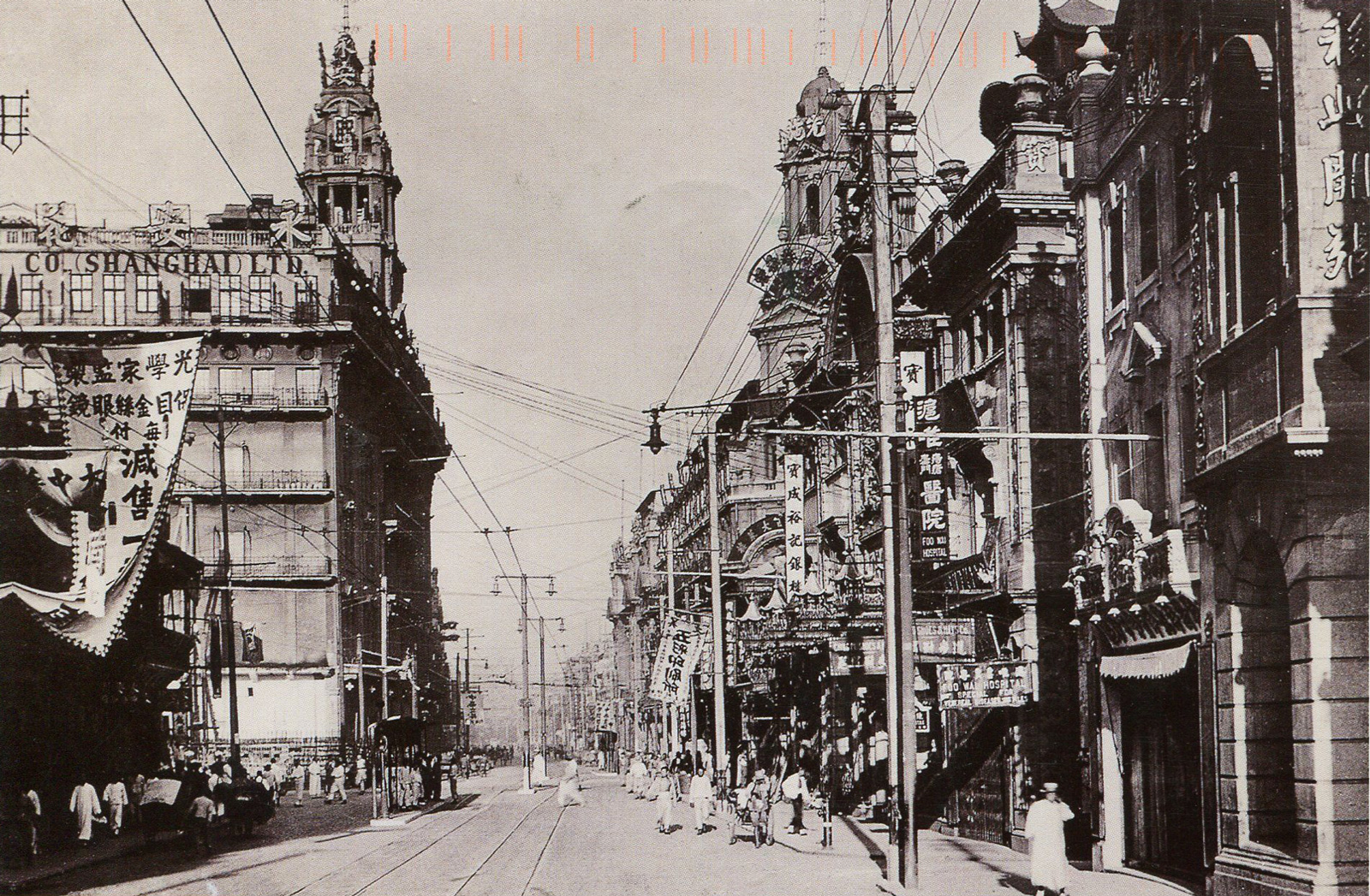
Huang, Zhang, and Du fashioned the Sanxin Gongsi, or Three Prosperities Firm. Ostensibly ruled collectively however in actual fact the non-public protect of Du himself, its objective was to handle the streamlined drug business. Du’s private subsidiary, the Black Stuff Firm, named for the colour of the sticky, tar-like drug which was its inventory in commerce, taxed the opium dens within the French Concession at a charge of 30 cents per night time for every opium pipe in use. The smuggling, refining, sale, and use of opium, mixed with legit companies of their names, generated a gushing stream of as a lot as $60 million within the Three Prosperities Firm’s first yr alone—about $913 million in U.S. {dollars} in 2021—equal to as a lot as 20 p.c of the state’s revenues. This cash went to paying for a sprawling French Concession home for Du, greasing the palms of the politicians and warlords to whom Zhang acted as diplomat, and feathering Huang’s retirement nest.
The Shanghai Municipal Police (SMP), which served the bigger worldwide settlement ruled by the U.S. and the U.Okay., had grown alarmed by the rising opium commerce even below Huang’s extra relaxed rule, however had been practically powerless to cease it. The Inexperienced Gang held the loyalty of the beggars who dotted the Concessions’ streets, who acted as a community of scouts and spies, alerting Du’s males to any potential bother. What’s extra, police from every of the three sections of Shanghai—the French Concession, Worldwide Settlement, and native Chinese language areas—had been barred from coming into the opposite areas, and criminals and suspects in every might solely be extradited after a protracted and byzantine utility which supplied ample time for a getaway. With the police divided and hamstrung, opium sellers had been assured sufficient to position their names and addresses on packets of opium.
By the early Nineteen Twenties, the SMP had begun cracking down on the sale and manufacturing of opium inside their territory, however by that time, Du and his companions had been so incontinently wealthy that they didn’t care. The opium visitors swelled so closely and was carried on so overtly that in 1930, the maverick journalist Bertram Lenox Simpson wrote:
“The Shanghai opium belief has its headquarters within the French concession, the place its shares are safely saved below police immunity. Greater than 20,000 chests of Persian, Turkish and Indian opium are saved there yearly. As well as, 1,500 chests of Chinese language opium are saved there month-to-month, bringing a complete of 6 ½ million {dollars} to these controlling the opium visitors. I might title the road within the French concession the place the top depot of this belief is located. There are 200 foreigners working in and round Shanghai for the opium belief, and 40 miles exterior the Shanghai harbour there’s a port for trans-shipment of abroad cargo of opium.”
Simpson’s persistent threats to disclose the situation of the depot got here to a brief, sharp cease quickly after, when a younger bespectacled Chinese language man in a go well with knocked on the journalist’s door one night, handed him a calling card, and shot him lifeless with an automated pistol. The homicide was by no means solved.
Glad-handedness with assassins however, Du endeared himself to Shanghai. In contrast to the miserly Huang, Du had already begun burnishing his popularity as an open-handed philanthropist. He threw events for well-known, if disgraced, politicians, supplied aid to victims of warlords’ squabbles in close by Zhejiang province, and unfold cash round city on any variety of charitable causes. As Du put it, “I don’t lower your expenses; I save friendship.”
Behind the benevolent public persona, nonetheless, was a ruthless kingpin: by 1927, nothing legal, unlawful, and even questionable happened in Shanghai with out Du’s say-so, and any criminal who dared to knock over a secure, rob a well-heeled Westerner, or run a quiet numbers sport with out giving the Inexperienced Gang their reduce was liable to finish up shot, kidnapped for ransom, or with their tendons sliced aside with a fruit knife. When Du wished a cease put to one thing, he’d ship a coffin to the home of the one who wanted stopping. Few did not get the message.
Below this iron hand, Shanghai’s underworld rapidly fell in line behind the brand new boss. Even town’s overseas residents had been topic to Huge-Eared Du’s governance: in a singularly sinister episode in 1932, a number of French officers who’d displeased him died mysteriously after consuming mushrooms at a banquet held of their honor. Not lengthy after, a ship carrying a French journalist who’d boasted about publishing a scandalous story—in all chance, the grisly particulars of the toxic mushroom meal—occurred to catch hearth and sink within the Indian Ocean. No story, no drawback.
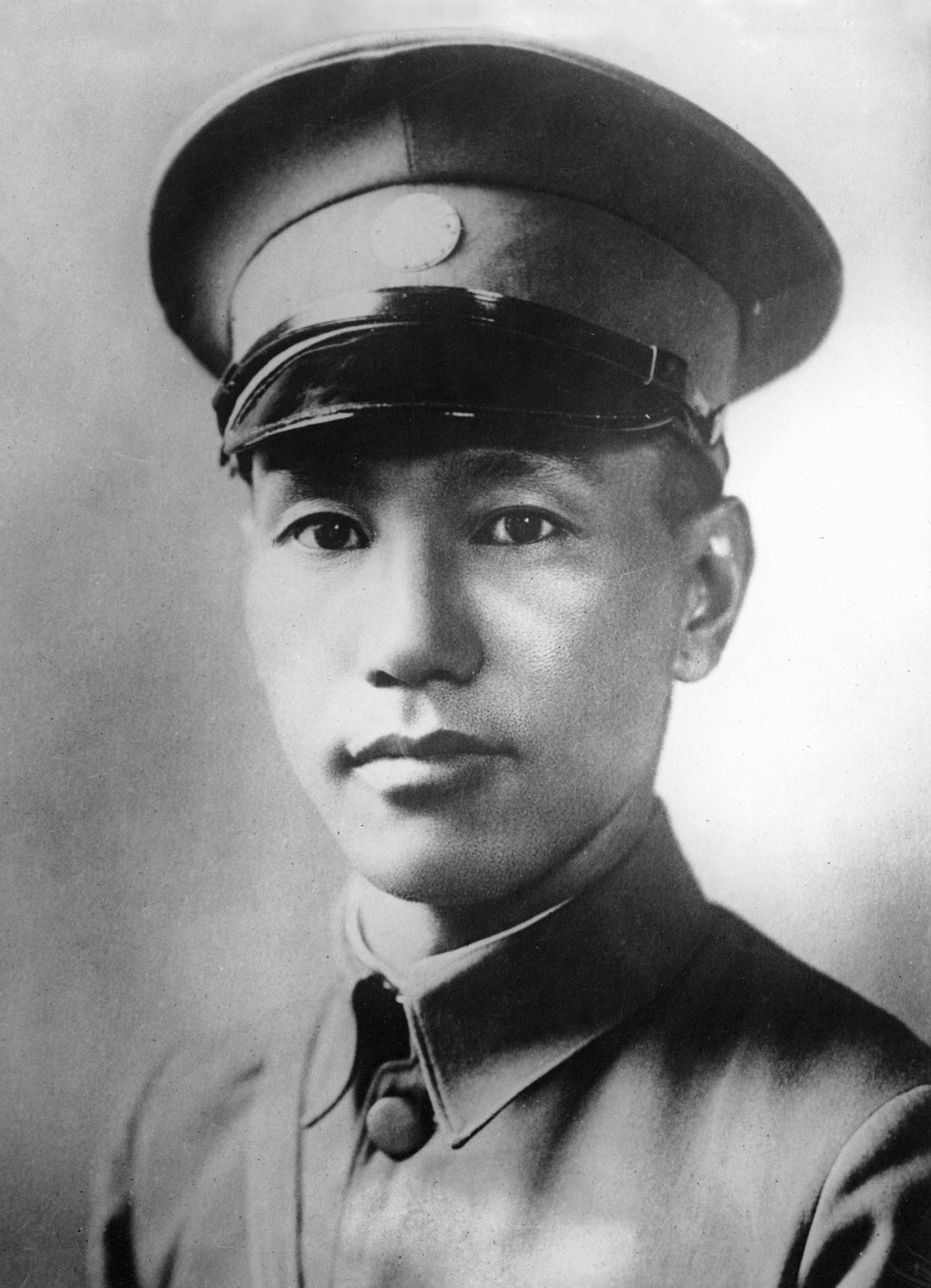
It was Du’s popularity for largesse, brutality, and effectivity which made Chiang Kai-shek sit up and listen in 1927. Chiang was a rising navy chief within the chaos following the 1911 Revolution which toppled the Qing dynasty. He’d been a founding member of the Kuomintang, or Nationalist Social gathering, a bunch devoted to main China into the broader world as a strong Westernized state, and had succeeded founder Solar Yat-sen as its chief upon his demise. Regardless of his later notoriety, information of these early years are patchy, at finest. Chiang might even have joined the Inexperienced Gang himself, however with surviving information muddled, lacking, or just destroyed, it’s not possible to say for positive. What’s sure is that, when the younger Chiang left Shanghai in 1919 to construct his military within the south, it was Huang Jinrong who paid his journey bills, and the budding generalissimo by no means forgot the favor.
In 1926, Chiang, more and more exasperated on the affect of petty warlords, gained the command of the Nationwide Revolutionary Military, the armed wing of the Kuomintang. Main this Western-style, Soviet-backed pressure north from Guangzhou, he battled his method alongside the coast, dispatching or absorbing the forces of the warlords till, by March 1927, he had reached the sting of Shanghai. After a present of token resistance from a White Russian-crewed armored practice, the commander of town’s defenses promptly surrendered his troops with barely a shot fired, and fled in shame.
Only a few months after setting off, Chiang was poised to grab management of the biggest and most affluent metropolis within the nation, the location of a lot of China’s overseas commerce, most of its factories, its largest and richest banks, fashionable shipyards, decadent nightclubs and casinos, and totally half of all of the automobiles and vehicles within the nation. It was additionally, sadly for Chiang, house to the biggest and best-organized group of the nation’s communists.
For 4 years, the Nationalists and the Communist Social gathering of China had been in an uneasy alliance of mutual vitriol, with the Nationalists hoping to snuff out the enchantment of communism whereas the communists hoped to co-opt the bigger get together to unfold their message of land reform, anti-corruption, and restricted democracy. As this ill-fated partnership festered and collapsed from inside, Chiang determined that, just like the warlords, he’d had nearly sufficient of the communists.
In the meantime, inside the metropolis, Communist leaders had seized their likelihood to boost the status of their get together simply because the warlord armies vacated. They’d been established in Shanghai for some years, time not spent idly, and the teeming labor unions they’d constructed up among the many greater than 40,000 manufacturing facility employees and different assorted laborers had been a formidable pressure. Outdoors of the Worldwide Settlements, Shanghai was now Communist nation, with employees’ soviets controlling each facet of infrastructure, work, and every day life. Chiang’s prize metropolis was booby-trapped by his rivals’ efforts, and earlier than he might faucet the bottomless wealth of town, he wanted to dislodge them.
The difficulty was that the Shanghai Municipal Council would by no means tolerate Chinese language troops inside the boundaries of the Worldwide Settlement. What’s extra, hundreds of Chinese language college students and employees loudly protested the presence of the Nationalist normal, demanding his resignation and departure and threatening to undermine any victory which may nonetheless be had. Chiang wanted an inside man. As Chiang prowled across the metropolis’s rim, Huang Jinrong paid a go to.
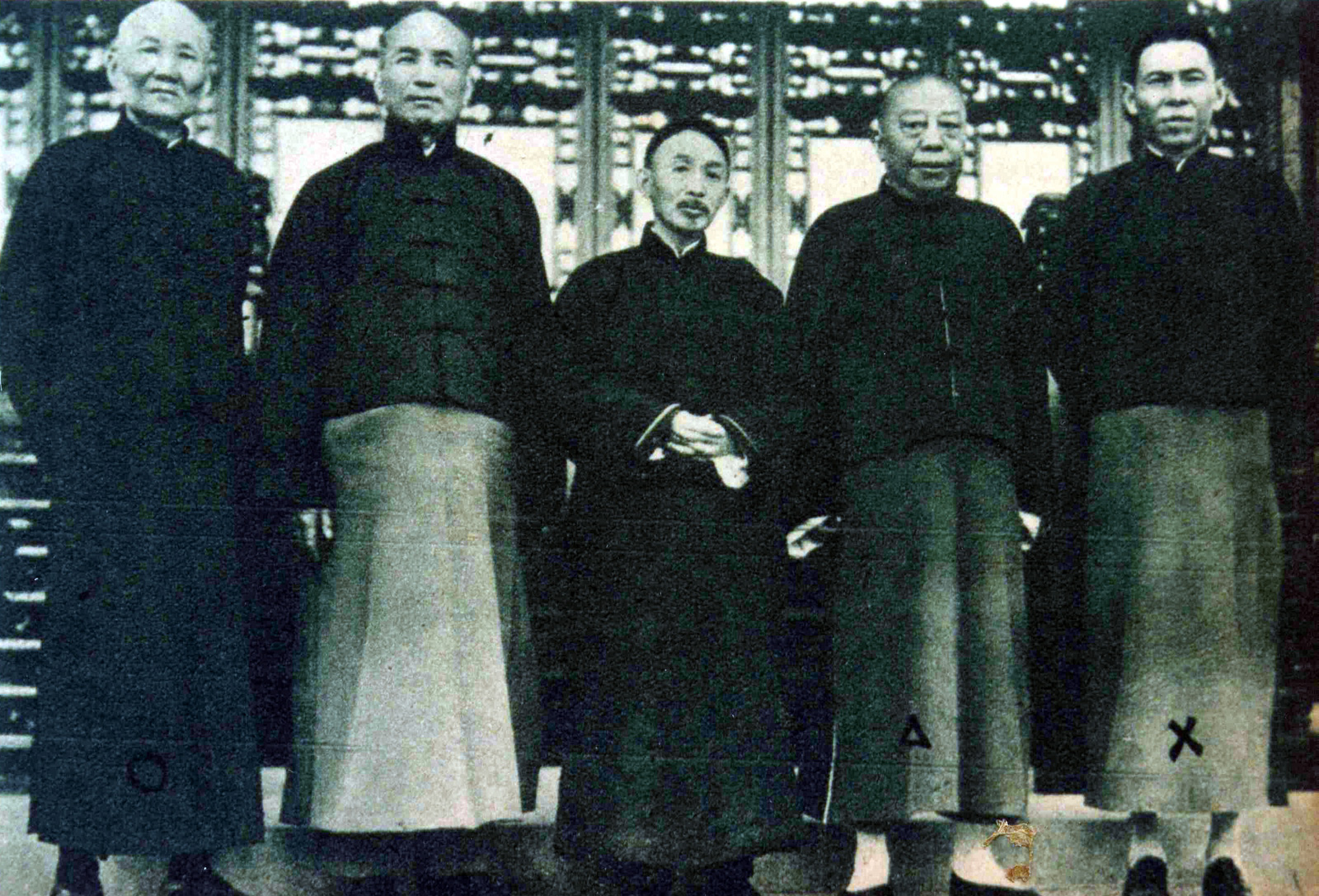
Huang relayed a proposal from his underling-in-name, Du: Chiang, who had only some thousand troopers, a few of whom had been skimmed off the highest of the evaporating warlord forces and will hardly be trusted, could be given the assist, wealth, and connections of the Inexperienced Gang, in addition to the implicit backing of Shanghai’s in depth enterprise class. In return, he was to recollect who his mates had been and look the opposite method as to the place his cash got here from. Chiang readily accepted, after which the actual power-broker confirmed his face.
Du went proper to work pumping his well-paid contacts within the overseas group for assist, acquiring lots of of weapons from the French and the Individuals with which to outfit his non-public militia. Given the selection between the terrifying prospect of a self-governing working class or mafia rule, for the Westerners, the selection virtually made itself.
Du additionally tried to make his males’s upcoming job simpler by inviting the top of the biggest commerce union to his house for dinner on the night of 11 April 1927. The organizer dutifully appeared, however when informed that it’d be in the perfect curiosity of his union and his bodily well being to change sides and oppose the communists, he unwisely balked. The beating which ensued was solely stopped when Du wafted to the highest of the grand staircase in an opium-laced haze and cried out “Not right here! Not in my home!” The chastened gangsters wrapped their sufferer in a burlap bag, drove him out of the French Concession, and, ignoring his moans, buried him alive.
Within the early hours of 12 April, about 2,000 denim-clad militiamen in Du’s make use of poured into the streets, mingling with union members and spreading to district places of work, factories, and infrastructure websites all through town. At daybreak, a prearranged sign consisting of a bugle name and a gunboat siren shrilled out, and the Inexperienced Gang males set to work murdering each communist and union member they may lay fingers on. Males had been beheaded on the street, teams of protesting employees had been rounded up and shot en masse. 1000’s extra had been tied collectively, shoved into vehicles, and shipped off to prisoner camps to be held with out trial. A grotesque rumor unfold that captive railroad employees at Shanghai South Railway Station had been dispatched by being burned alive within their very own locomotives.
By dusk, Inexperienced Gang militiamen had slaughtered as many as 5,000 employees and communists within the Shanghai bloodbath. The highest brass of the Communist Social gathering of China—comparable to CPC chief Chen Duxiu and his deputy, Zhou Enlai—slipped out of city as rapidly as attainable and regrouped with their allies because the Chinese language Civil Conflict started in earnest, and Shanghai’s service provider class rejoiced. For Chinese language businessmen, that satisfaction didn’t final lengthy although, since Chiang had little respect for capitalists apart from as a supply of cash, and his Inexperienced Gang mates didn’t disappoint. The unions had been completed, however retailers quickly discovered themselves paying a far larger value for his or her peace of thoughts. If businessmen did not pay into the Nationalist conflict chest, Du Yuesheng’s bruisers had been available to kidnap their sons in trade for lots of of hundreds of {dollars} in ransoms. His pockets fats and his Communist rivals shattered, Chiang lastly had his victory, his metropolis, and a real companion in crime who would quickly show himself to be the Nationalist commander’s biggest ally and probably the most persistent thorn in his aspect.
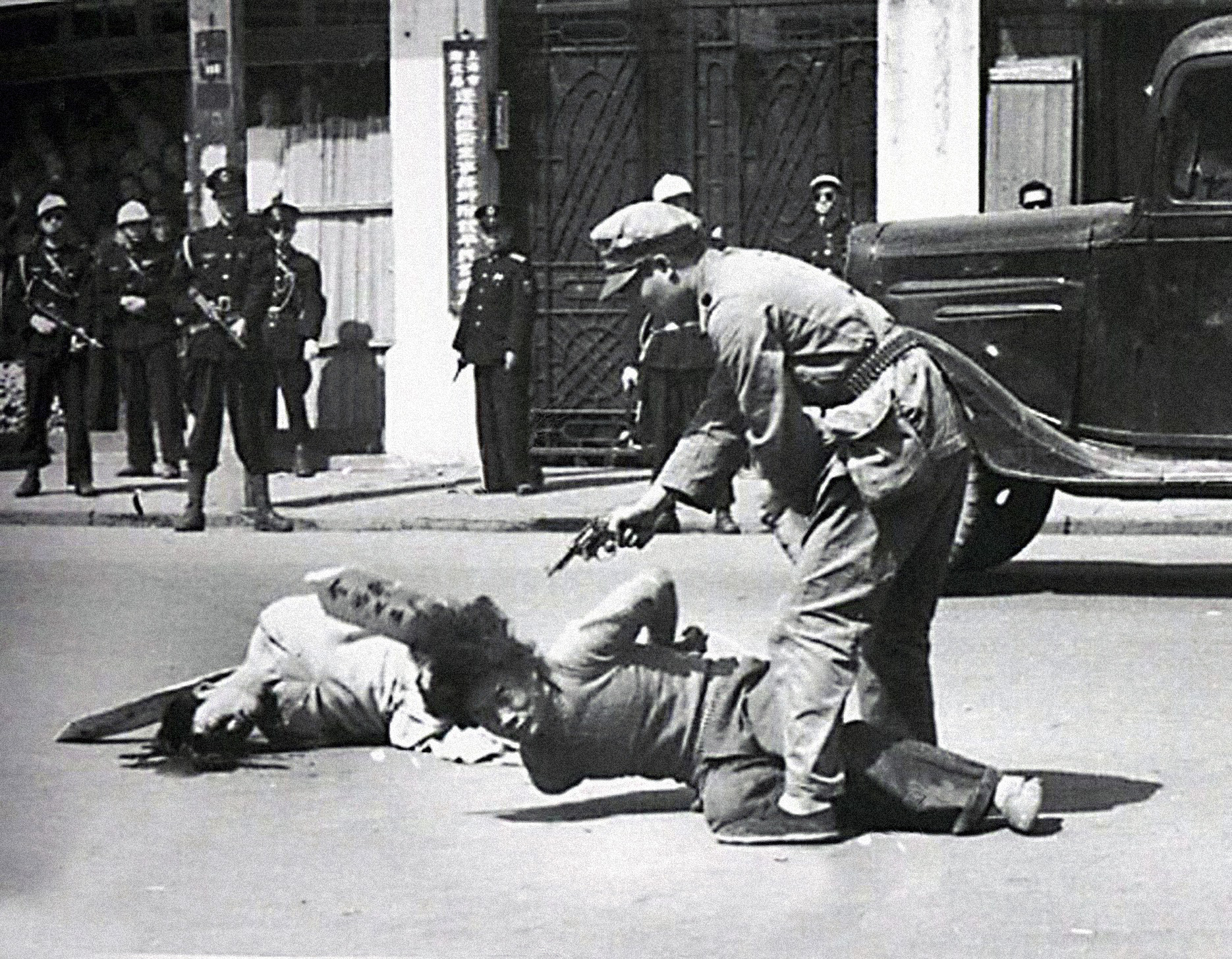
Du likewise got here out of the Shanghai bloodbath in an altogether higher place than earlier than it. He and his fellow gang leaders had been every given the honorary rank of main normal within the Nationwide Revolutionary Military. A lump sum paid to the Worldwide Settlement regained him the appropriate to fabricate and market medicine inside its borders. With the communists damaged and the warlords despatched packing, the French had been below no illusions as to who was in management exterior of their tree-shaded enclave. They amicably prolonged Du’s medicine license even additional, guaranteeing his opium-laden riverboats the safety of the French Navy. The biggest chunk of cash Du despatched upriver to Chiang, the primary of many illicit paydays and the beginning of an attractive friendship.
Chiang, nonetheless, now discovered himself in a tough place. His marriage of comfort with Du Yuesheng had put Shanghai, and all of the wealth it contained, in his again pocket. However the Shanghai Municipal Council haughtily demanded that he show to them that he and his new authorities, based mostly within the historic capital of Nanjing, had been able to managing their very own homeland. For that purpose, and to a minimum of be seen to comprise the horrifying development of Inexperienced Gang energy, he needed to set up a brand new police pressure in addition to make a public effort to stem and undo the unfold of opium.
Opium had been formally prohibited in China for greater than a century, first by the previous Qing dynasty after which on a province-by-province foundation all through the shambling republic. Opium suppression bureaus, ostensibly fashioned to implement this ban, had been incessantly little greater than a supply of fast money for whichever warlord occurred to be in cost in a given space. That is exactly what had occurred to the Shanghai Opium Suppression Bureau, and Chiang rapidly abolished this company as a public present of dedication, demonstrating to the Westerners in Shanghai that his authorities was, not like the warlords, severe about combating the drug commerce.
As a substitute, Chiang established the Jiangsu Opium Suppression Bureau, with Du Yuesheng at its helm. To observers, this was suspiciously like putting a fox accountable for a hen coop. However Du was a strong ally, and one who might remodel the sticky black opium into treasured {dollars}. Chiang wanted to increase his management over China via navy means within the face of cussed warlords and an more and more aggressive Japanese Empire. For all his get together’s professed beliefs of incorruptibility and honesty, there have been no depths to which he wouldn’t stoop.
Within the Qing dynasty’s halcyon days, it might have been a easy matter to levy taxes to fill the federal government’s coffers. However Chiang didn’t have that benefit. He’d inherited a rustic torn into dozens of petty states, menaced by aggressive neighbors, riven with poverty and crime, and bullied by well-monied overseas settlers. On high of that, Communist forces within the central and southern provinces stubbornly refused to be defeated, infected by the brutality which Chiang had inflicted in Shanghai. He needed to act quick to construct his military and furnish his authorities with the funds wanted to function successfully, and to get it, he turned to the quick-fix lure of medicine.
Mere months after Du’s ascension to the nationwide backstage, the Worldwide Opium Fee famous that “Tens of millions have been raised out of opium for navy operations and civil propaganda […] the Authorities is elevating the final cent out of the cultivation and use of opium.” T. V. Soong, China’s finance minister (and brother-in-law to Chiang Kai-shek, the monetary tycoon H.H. Kung, and Kuomintang founder Solar Yat-sen) had argued for legalizing this improbable money cow and nationalizing it. Nonetheless, Chiang was compelled to acknowledge the fact that Du had already achieved this. Not solely did it make little sense to antagonize his underworld ally by muscling in on his prize racket, it might make even much less cash. As a substitute, Nanjing and Shanghai settled right into a sordid partnership with seemingly limitless potential for development. The partnership quickly bore fruit: when the Nationalists forcibly took over a sequence of enormous banks, it was Du who persuaded the banks’ administrators that they had been “fatigued” and will resign. The president of the Financial institution of China was informed to maintain his protests to himself if he knew what was good for him.
Du, in the meantime, carried on in grand splendor. Carrying wealthy, elaborately adorned robes adorned with three preserved monkey heads for luck, he put his $40 million fortune (value about $815 million in 2021 {dollars}) to make use of in constructing a grand mansion on Avenue Edward VII (now Yan’an Highway), simply north of the previous walled metropolis and close by of the banks and lodges alongside the Bund. Inside this conventional home had been 4 wives, a number of concubines, eight sons, three daughters, and a squad of hulking White Russian bodyguards. When he went to nightclubs and cabarets, he surrounded himself with “three or 4 ‘sing track’ ladies decked in mink and diamonds” and two carloads of closely armed bodyguards always.
Du’s connections to a panoply of outstanding figures, each legit and in any other case, greased the treads of his efforts to reinvent his public picture as an upstanding pillar of the enterprise group. By the point he earned his first point out in 1933’s Who’s Who in China, he had gained an innocuous popularity as a “banker and public welfare employee.” Nowhere within the listing of occupations, chairmanships, and board positions that stuffed out the rest of the entry was the phrase “opium” to be discovered. The truth that Du’s Zhonghui Financial institution was the proper instrument for turning playing and drug cash into clear, respectable revenue will need to have fallen below his harmless description as “the director of many different Chinese language business […] organizations.” Ralf Sues, a Polish expatriate journalist who interviewed Du within the Nineteen Forties, supplied a pithier evaluation: “A mixture of Al Capone and Rockefeller.”
Not all of his wealth went towards skulduggery, nonetheless. Du’s different new ardour was showmanship. In June 1931, he placed on the largest present Shanghai had ever seen when he devoted a temple to his ancestors. After the ceremony, a parade in his honor trudged via city for hours, with British police and French gendarmes driving forward of banners emblazoned together with his title, together with hundreds of hangers-on and well-wishers in a line practically two miles lengthy.
The deafeningly loud procession lastly got here to a halt on the Supply of Golden Revenue Quay, the place Du and his get together had been ferried throughout to his native Pudong, the place the workers of one of many metropolis’s most well-known eating places had been ordered to relocate to cater for the three-day get together that adopted. 1000’s of meals had been served daily whereas Beijing opera stars serenaded the crowds throughout what was, in impact, an announcement that Shanghai was below new administration.
Du splashed out for civic causes, donating two dozen stone bridges to town and paying to renovate a treasured temple, and he chaired a number of native charities and colleges. When the Pudong Tongxianghui Constructing, a “grand eight-story edifice designed to shadow over each constructing within the neighborhood,” was erected on his road, the auditorium inside was dubbed “Du Corridor.” Through the opening ceremony, attended by the Kuomintang and enterprise elite, two males stood on stage inside: the mayor of Shanghai and Du Yuesheng.
Du had emerged because the darling of a metropolis enamored of his grandiosity and sheer energy. Even his gruff, working class Pudong dialect grew to become trendy. A long time later, an previous Inexperienced Gang hand claimed that, throughout the zenith of Du’s energy, “loafers and their mates might all say just a few sentences of Pudong dialect to be able to showcase, implying that that they had connections to Du’s group and that they weren’t alone on the planet.”
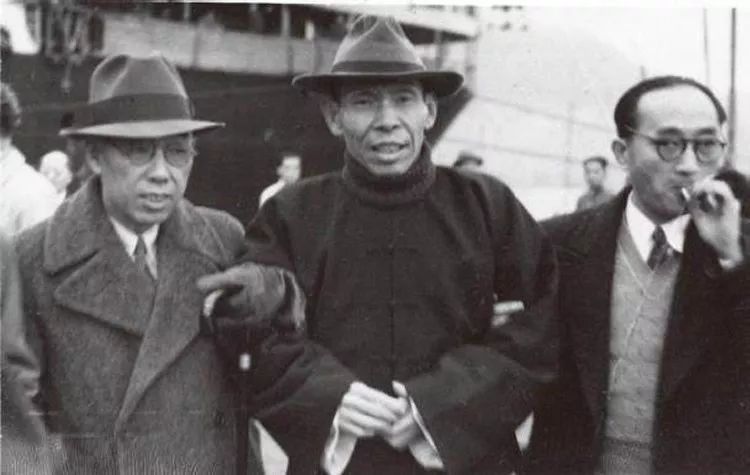
All of the whereas, Du’s drug factories cranked out greater than $5 million in tax income for Nanjing yearly (about $92 million in 2021 {dollars}). Largely retiring from energetic administration of the Inexperienced Gang, Du’s years of overindulgence in his personal medication started to indicate. A long time of opium use had remodeled the once-daunting kingpin right into a shambling shadow of his former self, “shuffling alongside, listlessly turning his head proper and left to look whether or not anybody was following him” with ”eyes so darkish that they appeared to haven’t any pupils, blurred and uninteresting—lifeless impenetrable eyes.”
After 30 years of intimidation, intrigue, calculated violence, and shrewd ambition, Huge-Eared Du lastly had every part for which he’d labored and schemed his method up from Pudong. For a person who’d spent his whole life wanting up, there was nothing extra to search for at. That didn’t imply that he would drop Shanghai’s reins from his opium-stained fingers anytime quickly, although—not even when the best risk China ever confronted got here to pry them unfastened.
In 1937, the Empire of Japan formally declared conflict on the Republic of China, formally changing a six-year-old chilly conflict right into a sizzling one. In July of that yr, Japanese troops marching south from Manchuria got here to a halt exterior of Shanghai, decided to grab town. Japanese conflict planners had been motivated by the identical greed which, 10 years earlier, had pushed Chiang to seize Shanghai, with the bonus that doing so would humiliate the Chinese language premier and, to an solely barely lesser extent, the overseas powers huddling inside the concessions.
In a gesture of assist, Du donated his bulletproof limousine to the Chinese language military, though the extent to which it might need helped the troopers avert the crushing defeat which adopted is unknown. Over the course of three months, the Imperial Japanese Military smashed the defending Nationwide Revolutionary Military to items, slicing complete divisions down by half. Lastly, as Japanese forces poured into town in early November, Du knew that it was solely a matter of time earlier than stiff-necked officers would come calling to both persuade him to hitch them, or to grab away his properties. Du quietly took stock, calculating which opium dens, playing venues, and brothels had been prone to be seized by the occupiers, assigning trusted lieutenants to the rest to maintain his money flowing. Then, with one in every of his wives in tow, he left city. As unlucky because the invasion was, he did not see why he ought to share the sorrows of town he’d lorded over for many years.
The money which had handed between him and Nanjing, he figured, needed to depend for one thing. Quickly after establishing himself in Hong Kong, he paid a go to to Chiang in his wartime capital at Chongqing. Because it was his cash which had paid for most of the rifles now clutched by battered Chinese language troopers, he was rapidly granted an viewers with the hard-pressed chief. Du wished to reaffirm their previous friendship and, like previous mates do, wished Chiang to concentrate on retaking Shanghai. Nonetheless snug Hong Kong was, the Inexperienced Gang chieftain clearly most well-liked his previous haunts. However Chiang was pragmatic about his minimal power to oppose Japan, and his response to his longtime ally was, in abstract, a agency “nothing doing.”
Du sat on the board of administrators of the Financial institution of China, held a excessive place within the Chinese language Pink Cross, and even deputized hundreds of Inexperienced Gang members to behave as a guerrilla unit inside Shanghai. However for all of the grand titles and respectability he’d garnered, his usefulness was coming to an finish.
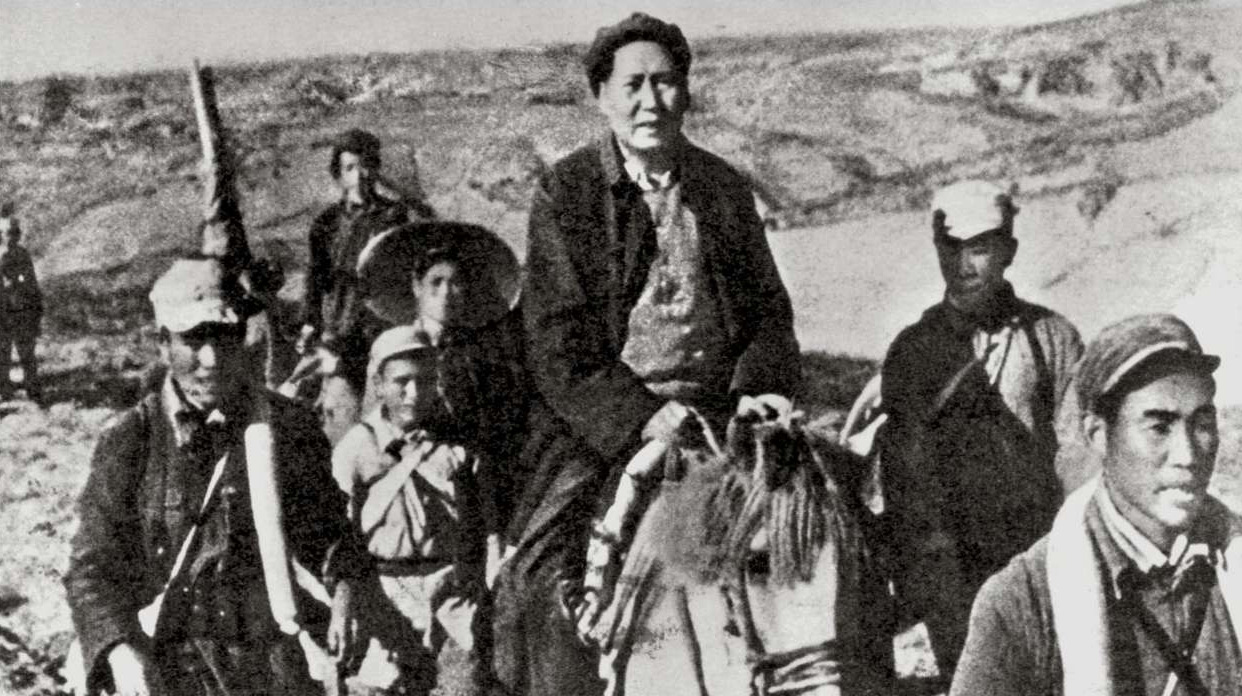
After a protracted and brutal Second World Conflict, an exhausted Japan lastly surrendered to the Allied powers, China amongst them, in August 1945. Within the eight years previous their defeat, Japan’s simplest opponents had been the identical communists suppressed by Chiang and Du 20 years earlier than. With the invaders gone, a surfeit of their weapons left behind, and hundreds of thousands of ravenous, landless peasants fed up with the Kuomintang’s excesses, China entered a brand new interval of civil conflict. Ending his lengthy exile now that the coast was clear, Du returned to Shanghai anticipating a pink carpet. As a substitute, he discovered a metropolis floor below the heel of invasion, embittered, and with little persistence or respect for one who’d deserted town in its darkest hour.
Chiang realized belatedly, as soon as once more, that he needed to take a stand towards corruption in an eleventh-hour bid to regain the sympathy of the inhabitants. The communists, below the management of Mao Zedong, had been immensely fashionable amongst China’s poorest, with the promise of land reform proving irresistible. It was now not simple to miss the misery-inducing supply of Du’s wealth. Maybe extra importantly, the Nationalists, with an economic system ruined by conflict, had been now extra determined for cash than ever earlier than. Simply as Du had strong-armed Shanghai’s retailers into filling Chiang’s coffers in 1927, he was now a goal for a similar therapy.
The downfall got here in 1948, when Du’s son Weiping—a stockbroker on the Shanghai Inventory Change—was arrested on Chiang’s orders, accused of inventory manipulation, and publicly paraded in handcuffs. Huang Jinrong had been humiliated when compelled to depend on Du to bail him out of jail a long time earlier. Du—extra untouchable than his previous boss had been, extra rich, higher liked—was compelled to bear the disgrace of seeing his personal son branded a legal in newspapers throughout the nation.
Now 60 years previous and aged earlier than his time, the wizened Inexperienced Gang boss secluded himself in his Hong Kong mansion in shame. Chiang, his military wilting beneath the communist advance, retreated to Taiwan in December 1949, and Du properly decamped as soon as extra to Hong Kong, by no means to return to town he’d as soon as held within the palm of his hand. The drained previous gangster lived in modest obscurity together with his fifth spouse, a Beijing opera star, as his previous ally arrange store in Taiwan.
As Shanghai swelled into an unlimited metropolis over time, all that was left to mark the deaths of 5,000 employees and college students was an austere monument in Longhua District, the place many had been killed in captivity. Though political violence and corruption had been nothing new in China, Chiang and Du’s distinctive and excessive relationship set in movement each the downfall of the Nationalist regime and the rise of the markedly extra brutal Mao Zedong.
Remnants of the Inexperienced Gang escaped to Hong Kong and Taiwan, the place they tried to reestablish their heroin operations. However as outsiders burdened with a ruined popularity, they had been quickly swallowed up by native gangs. Nonetheless, the Inexperienced Gang’s technical experience was broadly admired, and their drug labs might have been maintained by their victorious rivals even as much as the early Nineteen Nineties.

Du preceded the Inexperienced Gang in demise on 16 August 1951, nonetheless wistfully considering a return to town which was as soon as his treasured possession. For many years afterwards, Communist leaders nonetheless stung by the violence with which he had handled their comrades forbade any point out of his title, damning his reminiscence and making it a legal offense to publish articles or books about him. After reforms had been launched within the Nineteen Seventies, this restriction was regularly relaxed, and shortly the mythologized story of “the emperor of Shanghai” grew to become a well-liked subject for pulp writers and a recognizable character in motion pictures and tv.
Though the alliance between Du Yuesheng and the Republic of China had dissolved in acrimony lengthy earlier than, Chiang Kai-shek by no means actually forgot who his mates had been. Two years after the previous gangster died, Du’s stays had been dropped at Taiwan and interred in a personal cemetery simply exterior of the capital. An inscription above his tomb grandly proclaims the distinction, filial piety, and loyalty of the person buried inside.
© 2021 All Rights Reserved. Don’t distribute or repurpose this work with out written permission from the copyright holder(s).
Printed from https://www.damninteresting.com/the-kingpin-of-shanghai/
Because you loved our work sufficient to print it out, and skim it clear to the top, would you take into account donating just a few {dollars} at https://www.damninteresting.com/donate ?

